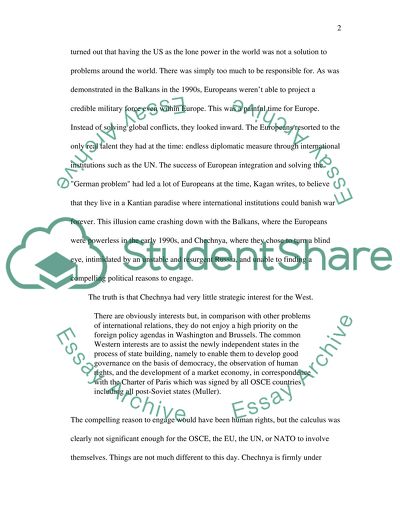Cite this document
(Kosovo and International Society Case Study Example | Topics and Well Written Essays - 1250 words, n.d.)
Kosovo and International Society Case Study Example | Topics and Well Written Essays - 1250 words. Retrieved from https://studentshare.org/politics/1559966-comparison-of-how-the-international-community-focusing-here-eg-on-the-un-osce-and-council-of-europe-is-dealing-with-chechnya-and-kosovo-independence
Kosovo and International Society Case Study Example | Topics and Well Written Essays - 1250 words. Retrieved from https://studentshare.org/politics/1559966-comparison-of-how-the-international-community-focusing-here-eg-on-the-un-osce-and-council-of-europe-is-dealing-with-chechnya-and-kosovo-independence
(Kosovo and International Society Case Study Example | Topics and Well Written Essays - 1250 Words)
Kosovo and International Society Case Study Example | Topics and Well Written Essays - 1250 Words. https://studentshare.org/politics/1559966-comparison-of-how-the-international-community-focusing-here-eg-on-the-un-osce-and-council-of-europe-is-dealing-with-chechnya-and-kosovo-independence.
Kosovo and International Society Case Study Example | Topics and Well Written Essays - 1250 Words. https://studentshare.org/politics/1559966-comparison-of-how-the-international-community-focusing-here-eg-on-the-un-osce-and-council-of-europe-is-dealing-with-chechnya-and-kosovo-independence.
“Kosovo and International Society Case Study Example | Topics and Well Written Essays - 1250 Words”, n.d. https://studentshare.org/politics/1559966-comparison-of-how-the-international-community-focusing-here-eg-on-the-un-osce-and-council-of-europe-is-dealing-with-chechnya-and-kosovo-independence.


